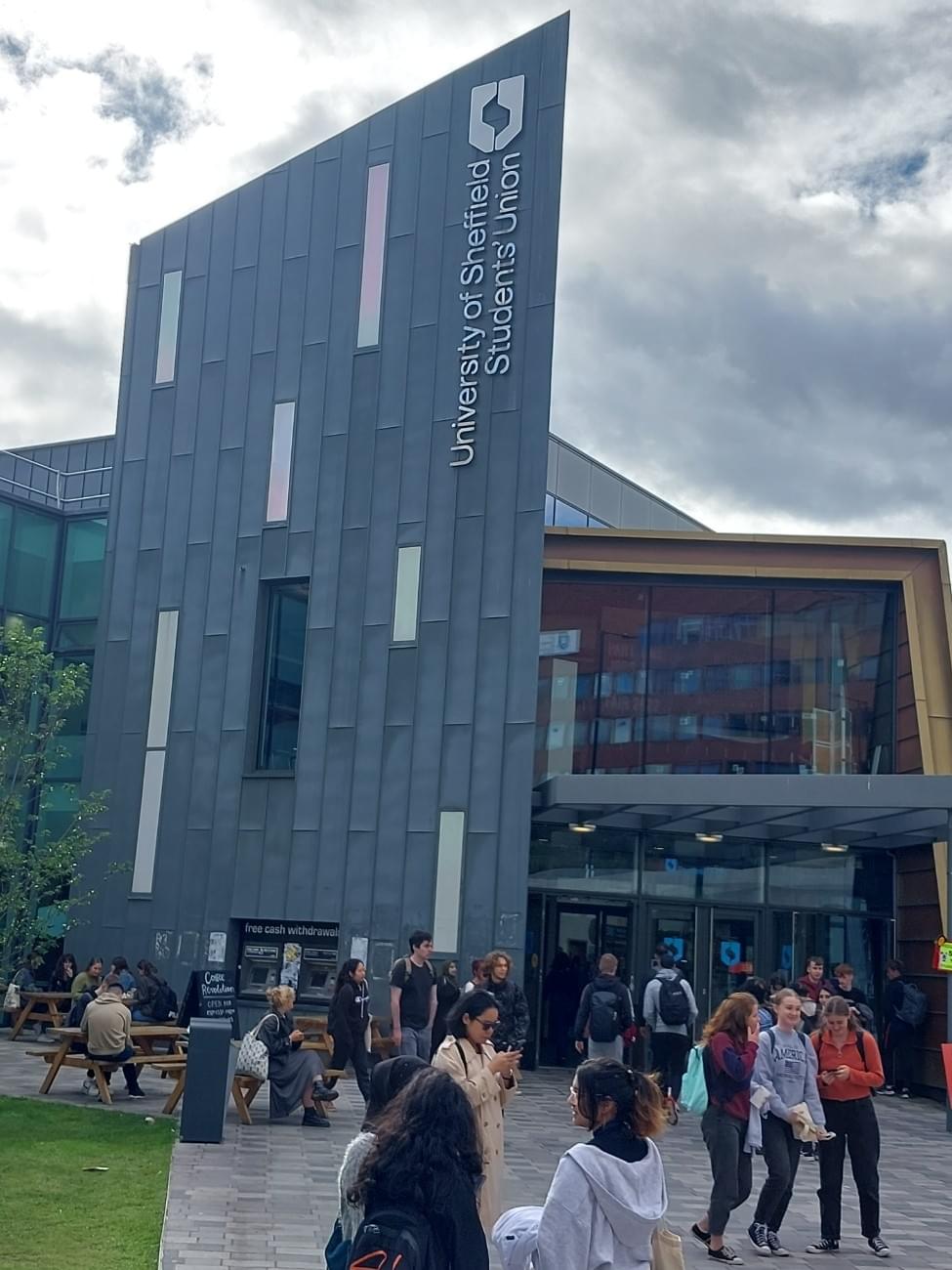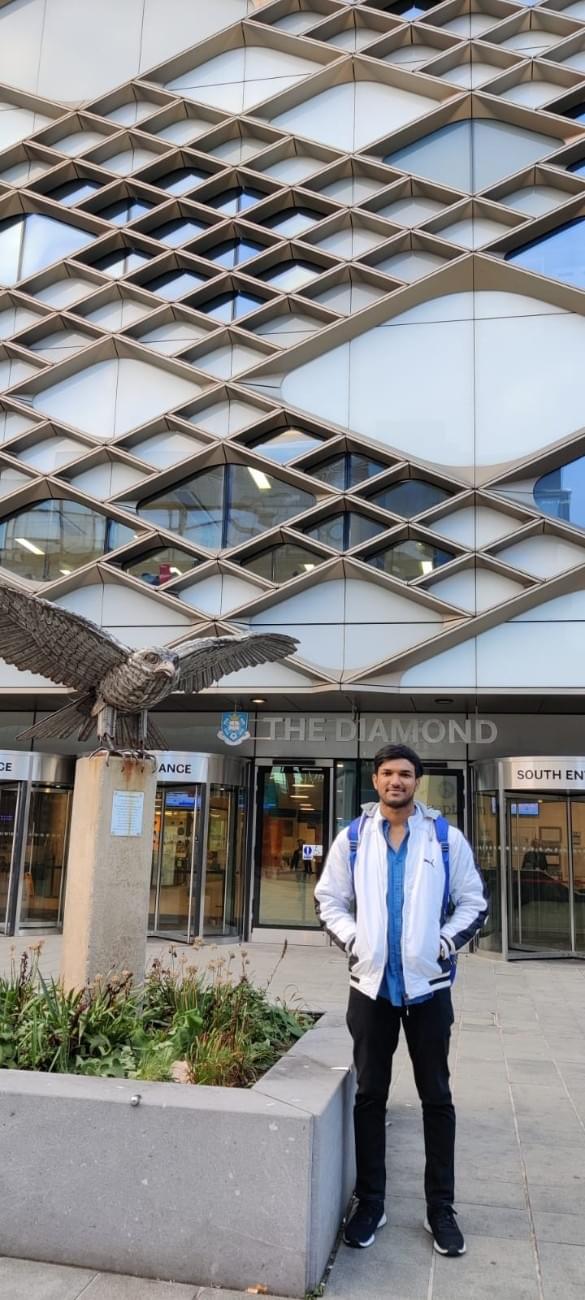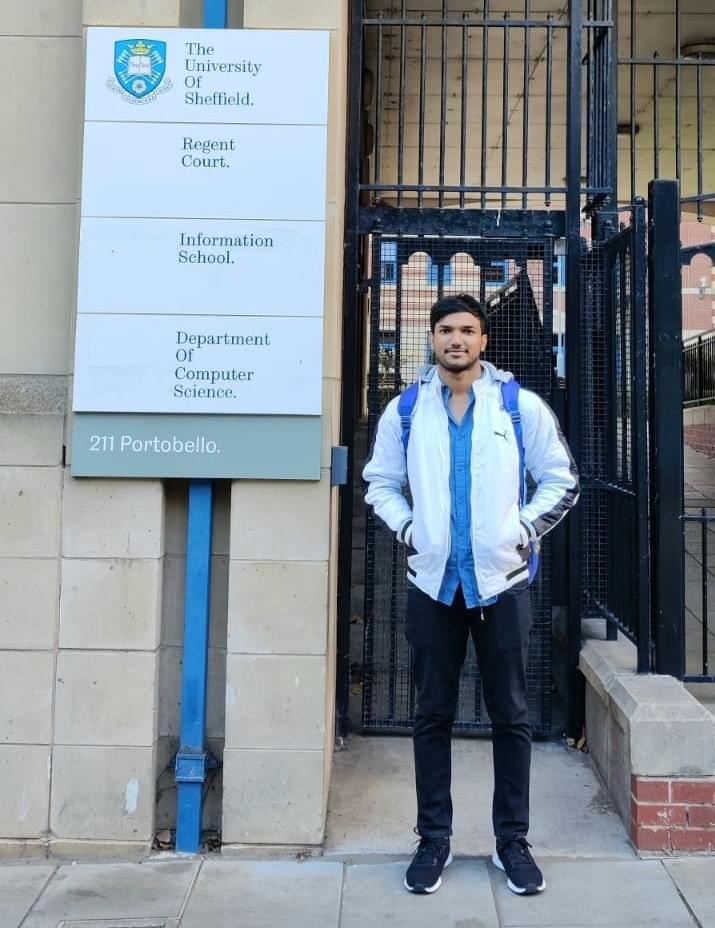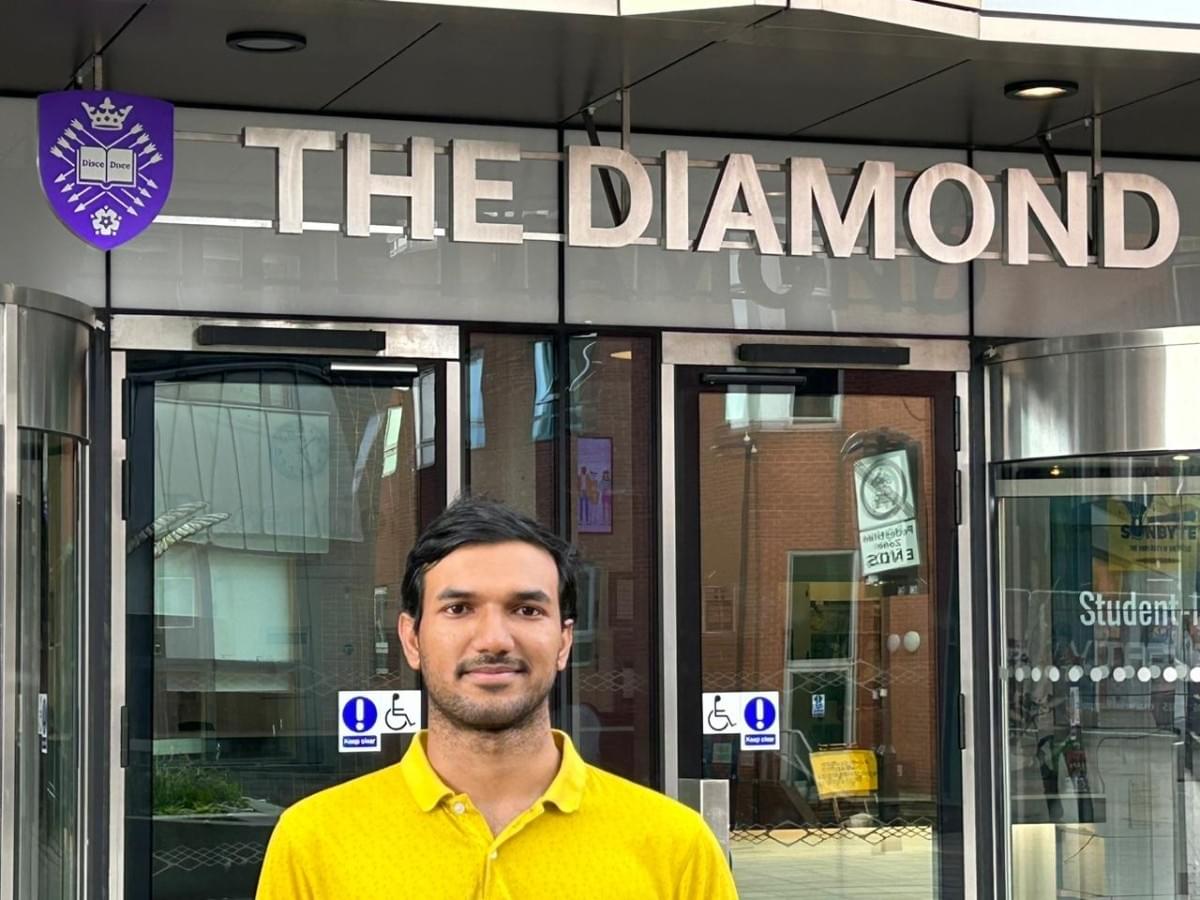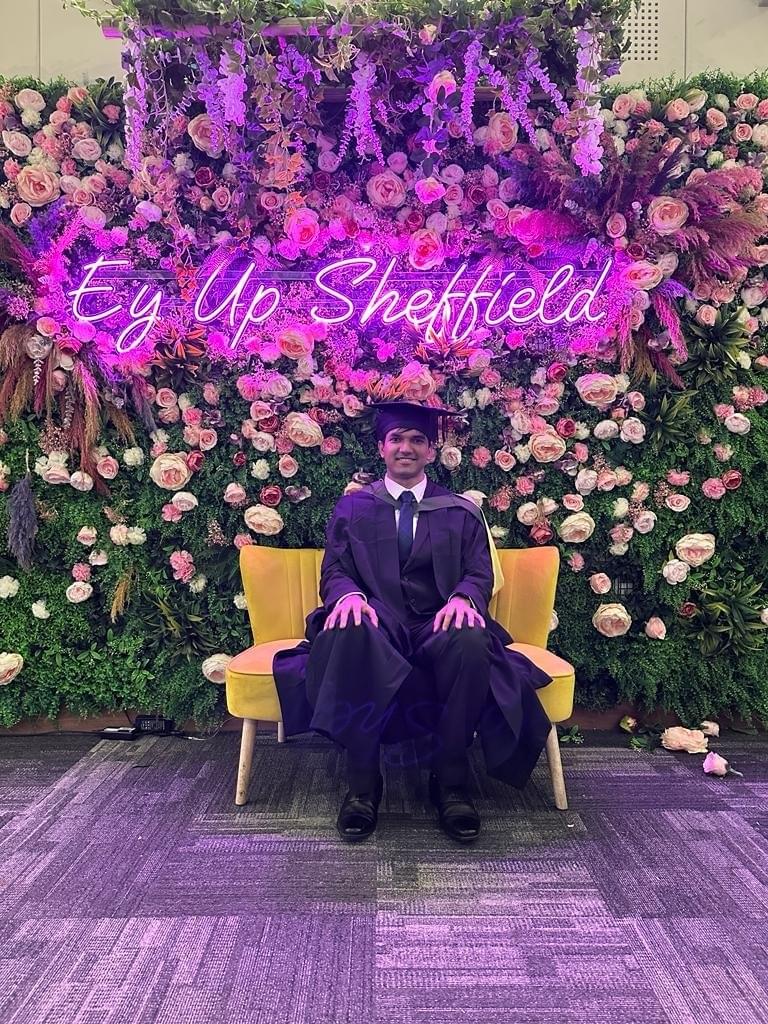What Students Say
Likes
- The University of Sheffield is a very reputable university and part of the Russel Group, which consists of elite UK universities. It has a very strong alumni network globally.
- Most professors are very highly qualified & knowledgeable.
- There is a lot of support available for students from professors, Teaching Assistants, Personal tutors & student services/students' union. Sheffield SU has been voted the best SU in the UK for many years now.
Dislikes
- There is not a lot of support for International students from career service. Most of their support is limited to tailoring your resume & cover letter which is helpful for graduates. However, for students with prior work experience or International students there should be focused support especially with the challenges of getting skilled worker visa.
- A lot of modules are taught in a year. Hence, teaching can feel a bit rushed. The onus is on you to study regularly & attend your lectures to be in a good position.
- For my course of Information Systems, there should have been more electives from Computer Science department. As a Software Engineer I would have loved that.
Course Curriculum
- My course was not difficult, but it requires regular study. There were many assignments, so you had to attend the lectures, go through the notes & study to be on track.
- Some modules, like Java, Data Science, Database, etc., had practical classes as well.
- Positive aspects of the course:
- Good blend of technical & business-orientated courses.
- Most modules were assignment-based. Few modules had exams. It was a new learning experience to do a mostly assignment-based course.
- Good research experience, especially doing the dissertation.
- Negative aspects of the course:
- Should have had more technical modules from the Computer Science department as electives.
- The number of lectures for some modules could have been higher.
- In a typical day, there used to be 2-3 classes. Maybe 2 lectures & 1 practical.
- timings vary. Some lectures were from 9 to 11 am; some were from 1 to 2 pm. Practical classes were generally 2 hours.
- The average number of students depends on the module. A module can be taken by students from different courses. So, in one course there might be 50 students & in another there might be 150 students.
- Indians & Chinese were the majority of all students. I don't know the exact number of Indian students in my course because we always had modules attended by students from other courses.
Admission Experience
- I had received offers from the University of Manchester, the University of Sussex, the University of Reading, in addition to the University of Sheffield.
- I didn't get any rejections. The University of Manchester course was Management of Information Systems, which is more business-related. The University of Sussex was in Information Technology, so more technology-related. The University of Reading was Business Consulting.
- I was between the University of Sheffield & Manchester. Both are Russell Group universities. The University of Manchester is higher ranked. However, I really loved the course at Sheffield. It was a good blend of technology & business. That was the major reason for choosing Sheffield. Also, the University of Manchester's tuition fees were higher, and I got a scholarship at the University of Sheffield.
- The admission process is very easy. You have to fill out the application, provide your transcripts, write a statement of purpose & get 2 letters of recommendation from your professors/teachers/employers. I took IELTS & got an 8 band. Generally the minimum requirement is 6.5. IELTS is generally more common in the UK.
- Overall admission experience was good. The University of Sheffield reached out to me for grade conversion. I provided that and got the acceptance in a few weeks. I would highly recommend applying as early as possible.
- September 2022 intake
- Most UK universities have a Sept intake. That's why I applied for it. In January very few universities/courses have intake.
- I applied in December and got an offer in January from the University of Sheffield. It depends on the university. Some might take give an offer in few days. Apply as early as possible. Good luck.
Faculty
- I am not aware of the exact faculty-to-student ratio. However, generally in a lecture we have 30-50 students in a class. Some modules might have 60-100 students. A different professor teaches each module. Of course, the higher the ratio of faculty to students, the better the quality of education.
- Normally, professors prepare slides for their lectures & go through them in class with more description. It is the starting point. Students can get a good understanding of the topic from them. However, students have to do their own research to get a deeper understanding of the topic.
- Academic studies and preparation for a job interview are two different things. If you plan to stay in academics, then a master's/PhD degree is the perfect launchpad for your career. If you want to go into the industry, then you have to be market-ready as well.
- Yes, students can reach out to faculty members for advice. They will be more than happy to give a reference for a job.
- I admire Dr Pamela Abbott the most. She is a brilliant lecturer and researcher. She was my dissertation supervisor, & I learnt a lot from her.
Campus Life
- The University of Sheffield is an open campus spread all over the beautiful and green city of Sheffield in South Yorkshire, England. There is no other campus.
- Information Commons is the main library. There are other libraries as well.
- Sports facilities include football grounds, cricket pitches, tennis & badminton courts, swimming pools, gyms, etc. There is the University Health Service (UHS) available if you need it.
- Sheffield Student Union has consistently been voted the best Student Union in the UK.
- There is always something going on. During the Fresher's week, there are many parties. Many fairs – career, sports, art, music, etc. – are also organised.
- SU is a democratic organisation. The leadership & organising committees are selected via elections by the students.
Part Time Jobs
- Teaching Assistant positions are competitive. Many apply for it, but few get it.
- Graduate teaching assistants are generally PhD students.
- Pay range is good. They are paid £16+/hour when I was in University. The minimum wage has risen, so their pay definitely must have risen.
- There are many part-time jobs available at the university. I was a student ambassador in my department. I used to get paid around £11/hour.
- International students are allowed to work a maximum of 20 hours a week during term. During holidays, they can work up to 40 hours.
- Getting a campus job is competitive but gettable. There are interviews for them. You have to be well prepared.
- In 2022-23 students could earn £10-11/hour on average. It was difficult to get a part-time job. The key thing is to keep trying. I worked in warehouses and supermarkets like Sainsbury's and McDonald's. You have to apply online for all these jobs & then they will call for an interview. You have to be well prepared for the interviews. If you clear them, you will get the job.
Placement
- The UK job market is very difficult right now. There have been a lot of visa rule changes. As a result, it's very difficult to get a good job, especially if you are a graduate with no experience.
- That's why I will highly recommend getting 2-3 years of experience in India before going for higher studies.
- I don't have the exact % of the graduating class who got a job. However, the majority of my friends got a job. Again, I can't comment on salaries since I am unaware.
- There is no concept of placement in the UK. Some universities have a placement year in which you do a 1-year placement in a company. In the end, they might offer you a full-time job. Unlike in India, companies don't come for placements. There are careers fairs where you can meet & interact with prospective employers. You can share your resume & network.
- Normally, you have to apply online either through LinkedIn or directly on the company's careers page.
- I am working at Allstate, a Fortune 100 US Insurance company, as Software Engineer. My friends work at the NHS, civil services, i.e., UK Government jobs. People are working in big banks like JPMorgan and Goldman Sachs. There are other working consulting firms like Deloitte, EY, KPMG, Accenture etc.
- More information - https://sheffield.ac.uk/postgraduate/taught/courses/2026/information-systems-msc
Accommodation
- I stayed in university accommodation. I applied through the university website. They are most trustworthy; that's why I chose them. I
- I paid £6,800 for the year. I shared a flat with 6 other students. We had our own rooms & shared a kitchen & bathroom.
- It's easy to get university accommodation.
- Staying in university accommodation was the best decision. I wanted to have a global experience & that's what I got. In my flat, there were 2 Indians, including me, 2 British, 1 German, and 1 Dutch. We were 4 boys & 3 girls. We got along very well & I had no issues.
- Private accommodations are cheaper, and Indian students prefer to stay within Indian groups. My advice would be to go and mix with people from other countries. What is the point of going abroad to study if you don't mix with other people?
- That's why I would recommend staying at university accommodation.
- My accommodation was just a 2-minute walk from the Diamond, where we had most of our classes. I made many friends in Mappin Court, including Indians. I had an amazing time there. My fellow Indian friends were very happy too.
Exams
- I took IELTS. Got 8 bands.
- The TOEFL or Cambridge test is also accepted.
- These tests are easy for someone with good English knowledge.
- You need an application form, transcripts, a Statement of Purpose, two letters of recommendation, a resume, and maybe a grade conversion scale.
- No, there was no interview for my course. However, some courses, like MBA, might have it.
Fees
- Total tuition fees were £24,400 at that time. I paid in 2 instalments. One can pay in full if they want.
- I stayed in university accommodation, which was £6,800 for the year. I paid in 3 instalments. Private accommodations are cheaper.
- Monthly expenses excluding rent come to £200-300 for food, groceries & other required things. I generally walked to class. In Sheffield, you get a student discount on public transport.
Scholarship
- Yes, I got a £2000 scholarship. It was based on my application, my results & experience.
- There is a UK merit scholarship from the University for very meritorious students, in addition to different scholarships which are funded by individuals or organisations. You can get a 25-50% scholarship. The criteria vary from one scholarship to another. Generally, they require a strong academic background. A good volunteering or sports background would be helpful.
- Some of my batchmates got a scholarship. However, getting a UK merit scholarship is very competitive.


